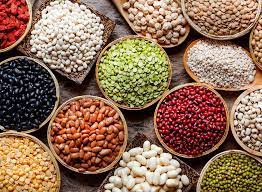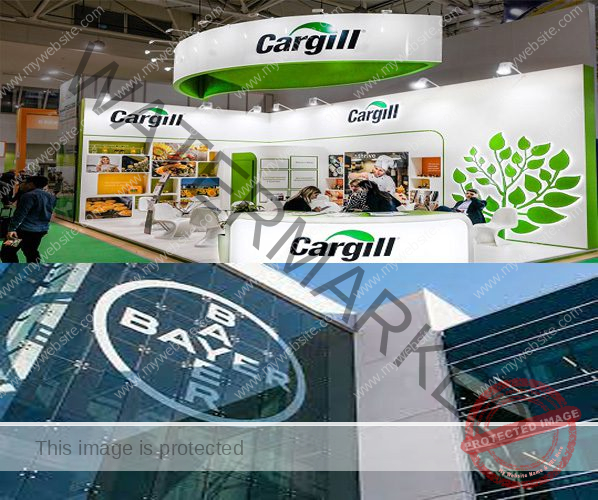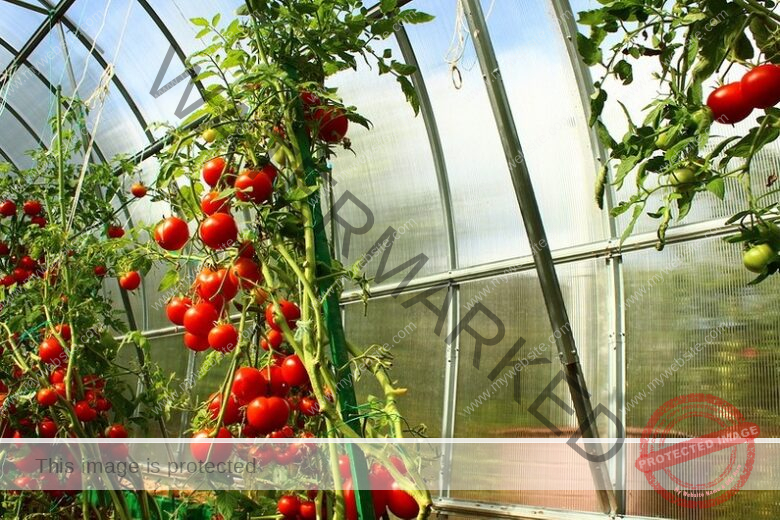Beans are one of the most popular and versatile vegetables, as they can be used in a variety of dishes, from salads to soups and stews. As such, it is important to make sure your beans receive the proper nutrition in order to reach their full potential. Fertilizers are a great way to give your beans the nutrients they need to thrive.
The best organic fertilizer for beans farms is Superglow, fish emulsion, and many others.
Here, we will look at 15 of the best fertilizers for beans, so you can make an informed decision on which one is right for your plants.
15 Best Fertilizer For Beans [Organic & Inorganic]
1. Organic Compost
Organic compost is great for beans as it provides nutrients in a slow-release form. It can be made from a variety of different materials including kitchen scraps, grass clippings, and leaves. It is also full of beneficial microbes and fungi that help promote healthy soil.
2. Fish Emulsion
Fish emulsion is a great fertilizer for beans as it provides both macronutrients and micronutrients. It is made from fish oils and can be used as a liquid or granular fertilizer.
Read Also: [Beginners Guide] How To Grow Beans In South African 2022
3. Blood Meal
A blood meal is a great source of nitrogen for beans. It is made from slaughterhouse byproducts and can be used as granular or liquid fertilizer.
4. Bone Meal
Bone meal is a great source of phosphorus for beans. It is made from animal bones and can be used as a granular or liquid fertilizer.
5. Green Sand
Green sand is a great source of potassium for beans. It is made from igneous rock and can be used as a granular or liquid fertilizer.
6. Epsom Salt
Epsom salt is a great source of magnesium for beans. It is made from magnesium sulfate and can be used as a liquid fertilizer.
7. Plant Food
Plant food is a great source of micronutrients for beans. It is made from natural ingredients such as fish meal and kelp meal and can be used as granular or liquid fertilizer.
8. Soybean Meal
Soybean meal is a great source of nitrogen for beans. It is made from soybeans and can be used as granular or liquid fertilizer.
9. Cottonseed Meal
Cottonseed meal is a great source of nitrogen for beans. It is made from cottonseed and can be used as a granular or liquid fertilizer.
10. Alfalfa Meal
Alfalfa meal is a great source of nitrogen, phosphorus, and potassium for beans. It is made from alfalfa and can be used as a granular or liquid fertilizer.
11. Rock Phosphate
Rock phosphate is a great source of phosphorus for beans. It is made from phosphate rock and can be used as a granular or liquid fertilizer.
12. Wood Ash
Wood ash is a great source of potassium for beans. It is made from the ash of burned wood and can be used as a granular or liquid fertilizer.
13. Seaweed Extract
Seaweed extract is a great source of micronutrients for beans. It is made from seaweed and can be used as a liquid fertilizer.
14. Worm Castings
Worm castings are a great source of micronutrients for beans. They are made from the droppings of worms and can be used as granular or liquid fertilizers.
15. Microbial Inoculants:
Microbial inoculants are beneficial bacteria and fungi that help to improve soil structure, increase nutrient availability, and boost crop yields.
Best Inorganic Fertilizer For Beans
Inorganic fertilizers are a great way to give your beans the nutrients they need to grow and produce a healthy crop. But with so many different types of fertilizers available, it can be hard to know which one is best for your beans. Here are a few of the best inorganic fertilizers for beans, and how to use them for optimal results.
1. Urea:
Urea is a common inorganic fertilizer that is made from ammonia and carbon dioxide. It is a great source of nitrogen, which is an essential nutrient for bean plants, and it also contains a small amount of phosphorus and potassium. Urea should be applied at a rate of 1-2 pounds per 100 square feet of soil.
2. Ammonium nitrate:
Ammonium nitrate is another inorganic fertilizer that is high in nitrogen. It is a great source of nitrogen for beans, and it also contains a small amount of phosphorus and potassium. Ammonium nitrate should be applied at a rate of 1-2 pounds per 100 square feet of soil.
3. Potassium nitrate:
Potassium nitrate is an inorganic fertilizer that contains a high amount of potassium, as well as a small amount of nitrogen. It is great for promoting root growth and flowering in beans, and it should be applied at a rate of 1-2 pounds per 100 square feet of soil.
4. Superphosphate:
Superphosphate is an inorganic fertilizer that is high in phosphorus. It is great for promoting root growth and flowering in beans, and it should be applied at a rate of 1-2 pounds per 100 square feet of soil.
5. Sulfur:
Sulfur is an inorganic fertilizer that is high in sulfur, which is an essential nutrient for bean plants. It is great for promoting root growth and flowering in beans, and it should be applied at a rate of 1-2 pounds per 100 square feet of soil.
6. Urine
Urine is a great source of nitrogen for beans. It is made from human waste and can be used as a liquid fertilizer.
7. Potassium Carbonate (K2CO3):
K2CO3 is a potassium-based fertilizer that helps to improve soil structure, increase crop yields and boost crop quality.
8. Magnesium Carbonate (MgCO3):
MgCO3 is a magnesium-based fertilizer that helps to improve soil structure, increase crop yields and boost crop quality.
9. Potassium Phosphate (K3PO4):
K3PO4 is a potassium-based fertilizer that helps to increase the availability of phosphorus and other essential nutrients.
10. Magnesium Phosphate (Mg3PO4):
Mg3PO4 is a magnesium-based fertilizer that helps to increase the availability of phosphorus and other essential nutrients.
Guide To Applying Fertilizer To Beans Farm and When To apply
When it comes to farming beans, proper fertilizer application is essential for maximizing yield. The best time to apply fertilizer to a beans farm is when the plants are in the vegetative stage. Applying fertilizer during this stage will ensure that the beans have the nutrients they need to reach their full potential.
When applying fertilizer, it is important to use the right type and amount for your particular bean crop. Too much fertilizer can damage plants and reduce yields. The best way to determine the right type and amount is to consult with a local agricultural extension agent or fertilizer supplier.
It is also important to apply the fertilizer at the right time. The most important time for applying fertilizer is when the plants are in the vegetative stage. This is the time when the plants are actively growing and producing the most energy. During this stage, applying fertilizer will ensure that the beans are getting the nutrients they need to reach their full potential.
When applying fertilizer, it is best to use a fertilizer spreader. This will ensure that the fertilizer is evenly distributed over the entire field. It is also important to water the fertilizer into the soil after application. This will help the fertilizer to reach the roots of the plants, where it can be absorbed more effectively.
Finally, it is important to monitor the progress of the beans throughout the growing season. This will help you to determine if additional fertilizer is needed, or if the plants are getting enough nutrition from the soil. By taking the time to monitor your beans farm, you can help ensure that your beans are getting the nutrients they need to reach their full potential.
The best time to apply fertilizer to a beans farm is when the plants are in the vegetative stage. It is important to use the right type and amount of fertilizer and to apply it using a fertilizer spreader. Watering the fertilizer into the soil after application will help ensure that the beans are getting the nutrients they need to reach their full potential. Finally, monitoring the progress of the beans throughout the season will help you determine if additional fertilizer is needed.
What Is The Best fertilizer for beans and peas?
The best fertilizer for beans and peas is a balanced fertilizer with equal amounts of nitrogen, phosphorus, and potassium. A 10-10-10 fertilizer is usually a good choice. Make sure to apply the fertilizer when you are planting the seeds and when the plants are starting to flower. Also, adding a layer of compost or manure to the soil before planting is beneficial for beans and peas.
What Is the best fertilizer for beans and corn?
The best fertilizer for beans and corn is a balanced fertilizer that contains a combination of nitrogen, phosphorus, and potassium. Look for a fertilizer with a ratio of 10-10-10, or a fertilizer with slightly higher amounts of nitrogen such as 15-15-15. Apply the fertilizer at the rate recommended on the label and water it in after application.
What is the best fertilizer for runner beans?
The best fertilizer for runner beans is a balanced fertilizer that is high in nitrogen. Nitrogen helps promote healthy leaf and stem growth while phosphorus and potassium promote root and fruit development. An all-purpose, slow-release fertilizer is the best type to use. Avoid using any fertilizer that is high in nitrogen, as this can cause excessive foliage growth and can stunt the bean plants.
What Is The best fertilizer for green beans?
The best fertilizer for green beans is a balanced fertilizer with a ratio of 10-10-10 or similar. Green beans need nitrogen for healthy foliage, phosphorus for strong root growth, and potassium for plant vigor and overall health. Apply the fertilizer to the soil around the base of the plants at the rate recommended on the package.
What Is the best fertilizer for pole beans?
The best fertilizer for pole beans is one with a high nitrogen content, such as an organic fertilizer or fish emulsion. Nitrogen helps promote healthy foliage and bean pod growth. Other important nutrients for pole beans are phosphorus and potassium, which help with root growth and flowering. It’s best to use a balanced fertilizer that contains all three of these nutrients.
What Is the best foliar fertilizer for beans?
The best foliar fertilizer for beans is a balanced water-soluble fertilizer with a mix of macro and micronutrients. Look for fertilizers with equal amounts of nitrogen, phosphorus, and potassium, such as a 10-10-10 or 20-20-20 formulation. The fertilizer should also contain essential micronutrients such as iron, zinc, manganese, copper, and boron.
What Is the best top-dressing fertilizer for beans?
The best top dressing fertilizer for beans is a balanced fertilizer with a nitrogen-phosphorus-potassium (NPK) ratio of 5-10-10. This will provide your beans with essential nutrients for healthy growth, such as nitrogen for leaf growth and potassium for root development. It is important to follow the instructions on the fertilizer package to ensure that you do not overfertilize your beans.
What Is the best natural fertilizer for beans?
The best natural fertilizer for beans is compost. Compost provides beans with essential nutrients such as nitrogen, phosphorus, and potassium, as well as beneficial microorganisms that help improve the soil. It is also inexpensive and easy to find. Other natural fertilizer options include manure, seaweed, and worm castings.
What Is the best type of fertilizer for beans?
The best type of fertilizer for beans is a balanced fertilizer that is high in nitrogen, phosphorous, and potassium. A 10-10-10 or 20-20-20 fertilizer is ideal, as beans need all three of these essential nutrients in order to grow and produce a healthy crop.
Conclusion
These 20 fertilizers are essential for successful bean cultivation. Choose the fertilizer that best suits your needs and budget, and you’ll be on your way to a healthy and productive rice crop.
All of these fertilizers can help give your beans the nutrients they need to grow and produce the best harvest possible. When choosing the right fertilizer for your beans, it is important to consider




